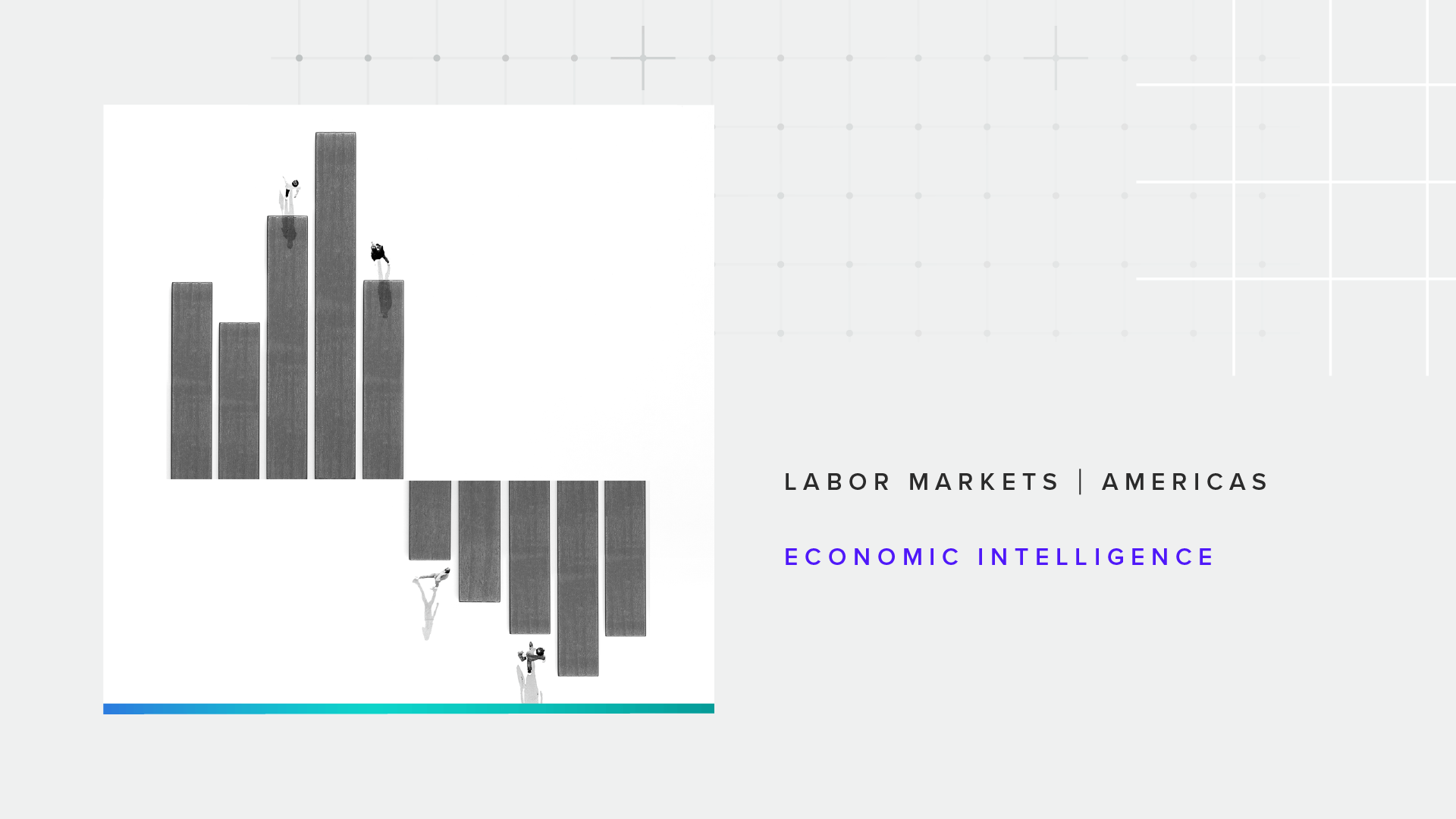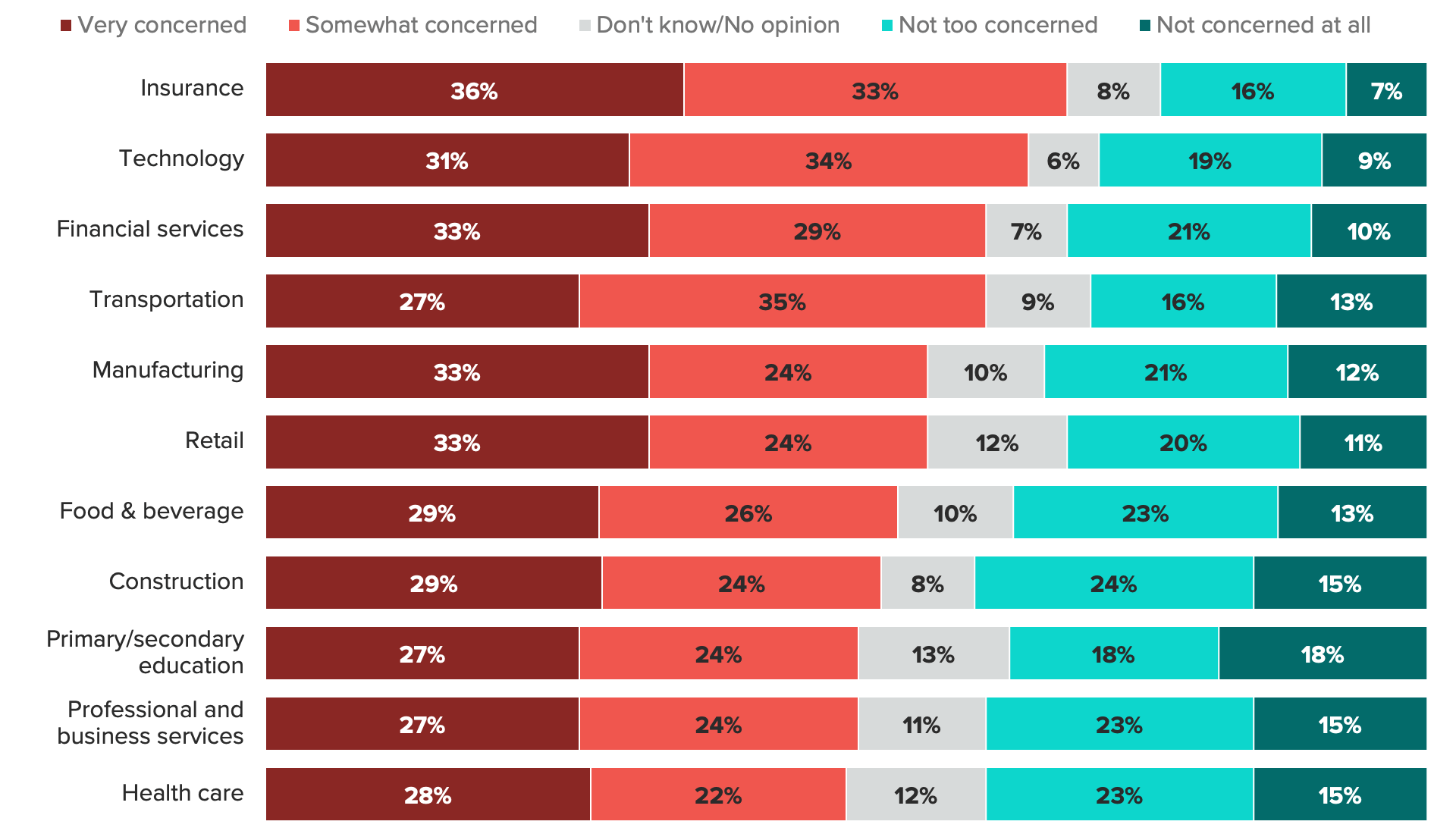American Workers Brace for a Recession in the Near Term and the Impact of AI in the Long Term

Key Takeaways
Morning Consult’s Lost Pay and Income Tracker edged higher, with the share of U.S. adults who reported lost pay or income rising from 10.7% in April to 10.8% in May. The small increase in the headline figure was driven by a large uptick in the share of U.S. adults from high-income households reporting pay losses, from 10.2% to 10.8%.
Job search activity resumed its upward trend in May, with the share of employed U.S. adults actively applying for a new role rising to 21.7% from 20.2% in April. The increase in May notably came from sectors, such as tech and financial services, that have seen elevated levels of restructuring.
While feelings of job insecurity have risen in the near term, U.S. workers are concerned about job losses over the longer term, with the impact of AI on jobs coming into focus. According to Morning Consult data, 65% of U.S. adults are “very” or “somewhat” concerned about job losses due to AI.
Our U.S. Jobs & Labor Chart Pack provides a curated summary of our proprietary Economic Intelligence data. Download today for insights on how the labor market is responding to 14 months of interest rate hikes.
The U.S. labor market is proving resilient in the face of 14 months of interest rate hikes. Unemployment is near historic lows, prime-age labor force participation is above pre-pandemic levels and nominal wage growth remains robust. The tight labor market is producing especially good results for minority groups and those at the lower end of the income spectrum.
However, we are starting to see signs of cooling in high-frequency data, with Morning Consult’s Lost Pay and Income Tracker coming in higher in recent weeks. The increase continues to be driven by higher earners, with the share of U.S. adults from high-income households who experienced a loss of pay or income rising for a third consecutive month.
At the high end of the income spectrum, white-collar professionals from tech to financial services and in various corporate roles are being hit with pink slips, while job losses at the lower end of the income spectrum remain relatively low. Ongoing tightness at the lower end of the labor market continues to provide benefits in the form of stronger wage growth to historically marginalized groups.
The share of employed U.S. adults who are actively looking for new roles increased in May, with the prospect of earning higher wages continuing to draw workers into a new job hunt. This high-frequency measure broadly reflects labor market tightness and could signal an increase in voluntary separations in the coming months as job searches lead to job offers and quits. However, we note that search activity has been elevated in some sectors and regions where lost pay is also elevated. For example, job search activity among higher-income workers and among those in the Northeast region has increased. These are demographics in which the share of people reporting lost pay has also increased in recent weeks.
Insurance and Tech Workers Most Likely to Be Worried About Impact of AI on Their Industry

U.S. workers are not just worried about their near-term prospects. They are taking note of the rapid introduction of AI technologies: 65% of U.S. adults say they are concerned that AI could lead to job losses. In a combined sample collected from February to May 2023 among over 13,000 U.S. adults, respondents who work in the technology and financial services industries were more likely to be concerned about job losses in their industry that could be attributed to the impact of AI. However, it is not all doom and gloom: When asked whether AI would create new jobs, 37% of U.S. adults agreed, while 39% disagreed.
The ultimate question is whether AI will be a tool that boosts the productivity of workers, lifting the marginal utility of additional labor and allowing employees to focus on more value-added tasks — or if it will eliminate some roles entirely. The answer is nuanced and likely depends on the industry and role. While it’s uncertain how AI will impact the future of work, millions of jobs will likely be affected, requiring careful consideration by policymakers on regulations and how best to support and reskill those impacted.
This memo offers a preview of Morning Consult’s June U.S. Jobs & Labor Report. Morning Consult Economic Intelligence subscribers can access the full report here.
Jesse Wheeler previously worked at Morning Consult as a senior economist.